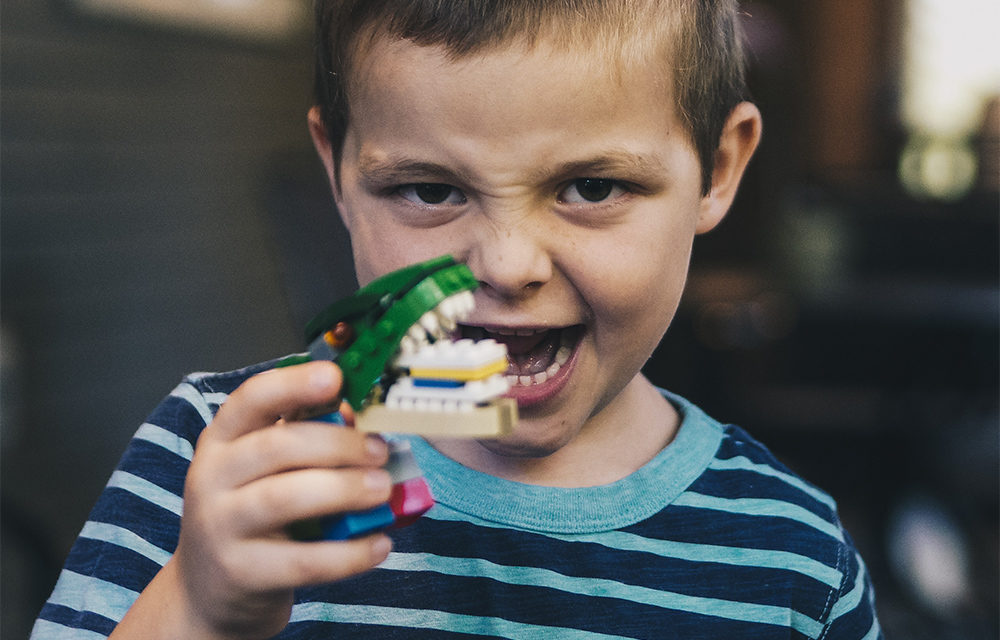Children are prone to a number of dental problems that affect their oral health such as tooth decay, early tooth loss, and more. While baby teeth will eventually be replaced with permanent teeth as they grow older, it’s still important to establish healthy oral habits at a very young age. As a parent, it’s crucial to know the most common dental problems found in children so you can take action and prevent these conditions from happening.
Baby bottle tooth
One of the most common dental issues children experience is baby bottle tooth (otherwise known as early childhood caries). This happens when the baby’s teeth comes in frequent contact with sugary liquids like milk formulas, fruit juices, and other sweet drinks. Breastfeeding infants tend to fall asleep with unswallowed breast milk, thus wearing off the tooth enamel and causing decay.
If baby bottle tooth is left untreated, the baby may experience pain and discomfort in their mouth. Baby teeth act as space savers for permanent teeth and when it gets damaged, it won’t be able to guide the new teeth into their correct position. This can result in crooked or crowded teeth which will require braces once their permanent teeth grows. There are a couple of steps to avoid baby bottle tooth:
- Avoid dipping your baby’s pacifier in any sugary substances and liquids.
- If you’re nursing at night and your baby falls asleep, remove your breast from your baby’s mouth.
- Use a clean, wet cloth to wipe your baby’s mouth after breastfeeding. This will help minimise the formation of bacteria that can cause tooth decay.
- Don’t put your baby to bed with a bottle that’s high in sugar content (fruit juices and milk formulas come to mind.)
Early tooth loss
Children and infants are susceptible to early tooth loss caused by trauma, tooth decay, or lack of jaw space. If the baby teeth are lost before the permanent teeth grows, the neighbouring teeth can shift out of alignment and there many not be enough room once the new teeth emerges. Crooked and misaligned teeth presents a number of issues such as chewing difficulties and temporomandibular joint problems.
If your child loses their teeth, their dentist may recommend a space maintainer. This prevents the nearby teeth from tipping by holding the open space left by the lost tooth. The dentist will remove the space maintainer once the permanent teeth emerges.
Thumb sucking
Thumb sucking is a common habit for infants and children. The sucking of thumbs, pacifiers, and fingers provides them with a sense of comfort and security, much like sucking their mother’s breast. But if your child still thumb sucks at the age of 5, dental problems are likely to occur. Depending on the intensity, frequency, and duration, thumb sucking can push your child’s teeth out of alignment, causing them to protrude and result in an overbite. Your child may find it difficult to pronounce certain words because of this condition.
Do keep in mind that thumb sucking is normal for infants and young children. Your only concern is to stop your child from thumb sucking once their permanent teeth are emerging. You can help your child stop thumb sucking by:
- Encourage your child with positive reinforcement. Explain to them why thumb sucking is no longer appropriate for their age and give praise each time they stop the habit.
- Take the thumb out of your child’s mouth when he/she falls asleep to help them stop thumb sucking.
- Find out what causes your child to thumb suck. If they do it out of stress or anxiety, aim to reduce these factors to lessen their need to thumb suck.
- Cover the finger or thumb with a band-aid as a reminder for them to stop thumb sucking.
Lip sucking is a similar condition to thumb sucking. Instead of the thumb, the child repeatedly sucks their lips, resulting in cuts and wounds that are otherwise painful. You can implement the steps used for thumb sucking to prevent your child from lip sucking as well.
Periodontal disease
Periodontal disease (also known as gum disease) is a frequent oral health issue found in children. This is due to lack of proper oral hygiene where plaque builds up in the teeth significantly. Gum disease isn’t painful in general and your child may not even be aware that they have it. The most common symptoms of gum disease are swollen gums, bleeding while toothbrushing, receding gums, and pus between the teeth and gums. To prevent gum disease in children:
- Encourage your child to brush their teeth at least twice a day.
- Use a floss to remove food particles in between their teeth.
- Schedule a regular visit to the dentist.
- Eat healthy foods that are low in sugar and starch.
It is your responsibility to help your child develop healthy oral habits at an early age. These tips will help your child avoid common dental problems and provide them with a brighter, whiter smile as they grow older.

